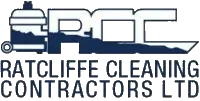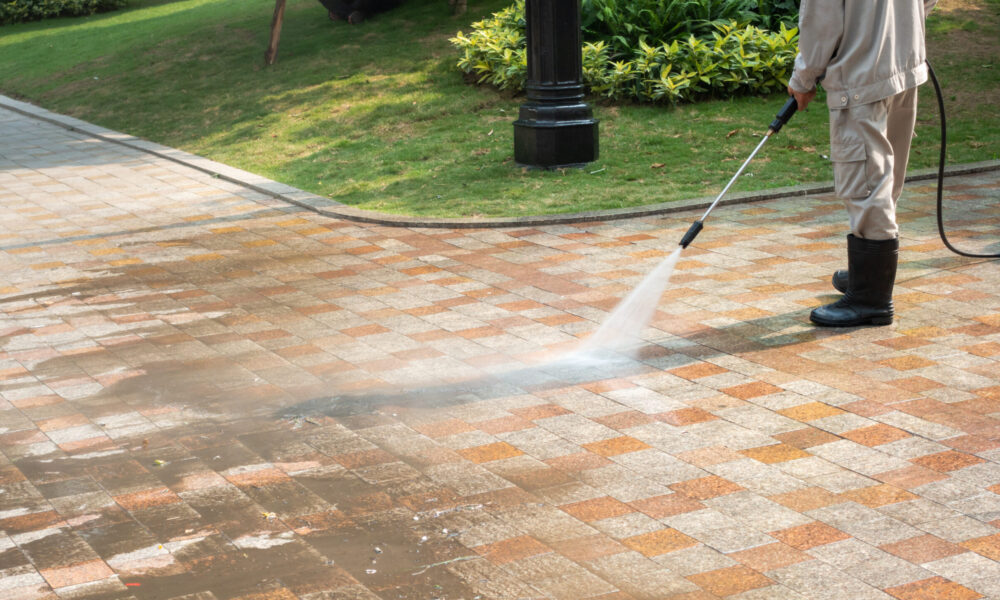Pressure washing is an incredibly effective method for cleaning a wide variety of surfaces. Whether it’s grime-covered pavement or mossy brickwork, the high-pressure water can blast away dirt and leave surfaces looking fresh and clean. However, there are some things that should never be pressure washed, as the intense pressure can cause damage, safety hazards or simply be ineffective. In this post, we’ll explore what shouldn’t be pressure washed so you aren’t left wasting your time or potentially damaging essential items around your home or office. We’ll also offer some alternative cleaning methods to ensure your property is cleaned safely and effectively.
1. Windows and Glass
It may seem like an easy way to get rid of dirt, fingerprints and smudges, but windows and glass should not be pressure washed. The high water pressure can crack or shatter the glass, leading to costly repairs or replacements. Even more durable types of glass, like double-glazed windows, are at risk because water can seep into the seals and cause long-term damage, including fogging between panes. So rather than breaking out the pressure washer, a simple soft wash and hand cleaning will be more than suitable for getting the job done. A soft wash method using a low-pressure hose combined with a window-cleaning solution is a much safer option. You can also use a squeegee and a mixture of water and vinegar or a specialised window cleaner to remove dirt without damaging the glass like a pressure washer most likely would
2. Electrical Panels and Meter Boxes
It goes without saying that mixing water with electricity is never a good idea, so you can probably understand why electrical panels, meters, outdoor outlets and any other electrical equipment should never be pressure washed. The high-pressure water can force its way into electrical components, causing short circuits, electrical fires or even complete failure of the equipment. So when dealing with electrical panels or equipment, it’s best to clean them using a dry cloth or brush to remove dust and dirt. If you must use water, make sure it’s a light mist or damp cloth and ensure the power is turned off before starting any cleaning.
3. Asphalt Shingles
While pressure washing is great for hard surfaces like driveways, it’s a different story when it comes to roofing, especially asphalt shingles. The force of the water can strip away the granules that protect your roof from UV rays and weathering which means over time, the shingles are weakened leading to leaks and a shortened roof lifespan. Instead of pressure washing, opt for a roof cleaning solution specifically designed for asphalt shingles. These are typically applied with a low-pressure sprayer and will gently remove dirt, moss and mildew without damaging the actual roofing material.
4. Painted Surfaces (Unless It’s Graffiti)
Pressure washing can strip paint from walls and surfaces, leaving them looking uneven and damaged. This means if your goal is to remove dirt while preserving the paint, pressure washing may cause more harm than good. For painted surfaces, especially those that need to be preserved like the external facade of your home, soft washing is the best approach. This method uses a lower pressure setting along with gentle cleaning solutions to lift dirt without damaging the paint. For smaller areas, hand scrubbing with a mild detergent and a soft cloth may be enough.
On the other hand, if you are trying to remove graffiti, pressure washing can be an effective method. However, it should be done carefully and with the right equipment. This is a service we offer at Ratcliffe Cleaning Contractors to ensure that your walls are graffiti-free without damaging the underlying surface.
5. Wooden Decks and Furniture
Wood may seem durable, but pressure washing can be a bit too much for it sometimes. Pressure washing wood can splinter the surface, remove protective finishes or even cause warping. Even treated or sealed wood can be damaged by the high pressure being emitted. For wood surfaces like decks and furniture, we instead recommend the use of a low-pressure washing system combined with a wood-safe cleaning solution. After washing, it’s a good idea to re-seal or refinish the wood to ensure it remains protected from the elements.
6. Vehicles
Pressure washing your car, truck or van might seem like a quick and easy way to get rid of grime, but it can actually damage the paint, strip away wax and even dent or scratch the bodywork. In some cases, it can also force water into parts of the vehicle that shouldn’t get wet, like the engine or electrical systems. For vehicles, it’s best to stick with hand washing using a sponge or microfiber cloth along with car-specific cleaning products. For those who want a more hands-off approach at the cost of maybe having to wait in some longer than comfortable queues, automatic car washes are also designed to clean vehicles safely without risking damage to the paint or other components.
7. Old or Damaged Brick and Mortar
Brick is generally a tough material, but if it’s old, fragile or already damaged, pressure washing can weaken the structure further. It can erode the mortar between the bricks, leading to structural issues down the line also which is the last thing you want for your home. For old or damaged brickwork, soft washing is the safest option. A gentle cleaning solution combined with low-pressure water can remove dirt and stains without further degrading the brick or mortar. For particularly delicate areas, manual cleaning with a brush may be necessary.
8. Gutters
While it may seem tempting to use a pressure washer to clean out clogged gutters, the force of the water can actually dislodge or damage them. Gutters are usually secured with brackets or clips, which can be knocked loose by the pressure, causing them to sag or pull away from the roof. Instead of pressure washing, it’s best to clean gutters manually using a gutter scoop or your hands (obviously wearing gloves at all times). You can also flush your gutters out with a garden hose on a lower pressure setting to clear away any remaining debris.
9. Laminate Flooring
If you have outdoor areas with laminate flooring, pressure washing is definitely not safe. The high pressure can lift the laminate, damage its protective coating and force water underneath the layers, leading to warping or buckling. For cleaning laminate flooring, it’s best to use a gentle mop with a laminate-safe cleaner or simply sweep away dirt and debris, much like you would for any indoor laminate flooring areas. If the flooring is in a patio area, avoid excessive water exposure and regularly clean it with a broom or vacuum designed for hard floors.
10. Aged Concrete
Because of how tough concrete is, you might think pressure washing is suitable for cleaning. And while concrete is generally solid enough to withstand most methods of cleaning, older concrete surfaces can be weakened and cracked by pressure washing. High-pressure water can erode the surface layer of concrete, especially if it’s already worn down from years of exposure to the elements. This can lead to pitting, cracks or spalling (flaking off). For older concrete, it’s much wiser to use a broom for regular maintenance or a low-pressure washer with mild detergents designed for concrete surfaces. This can help lift dirt without risking further damage.
In Conclusion
While pressure washing is a powerful specialist cleaning tool, it’s not suitable for every surface. From delicate glass to aging brick, understanding what you shouldn’t pressure wash – and what cleaning method to use instead – ensures your cleaning process is effective without causing unnecessary damage.
If you’re unsure whether something should be pressure washed, don’t hesitate to reach out to us for expert advice. Contact us today to learn more about our residential and commercial cleaning services, including our expert jet and pressure washing solutions. Let us help you keep your property clean and well-maintained, while ensuring its long-term protection! Your property’s cleanliness and longevity are our priority!


